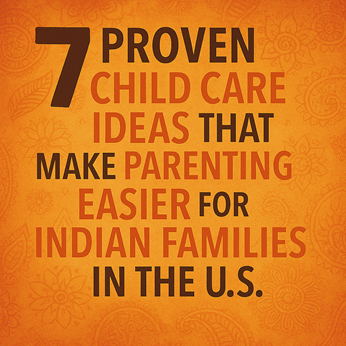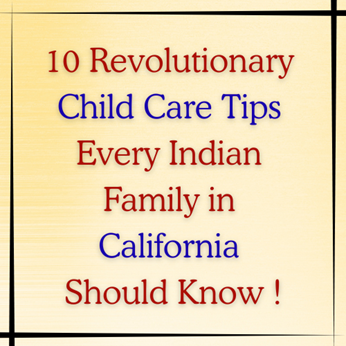Some Top Reasons For Miscarriages
Miscarriage or loss of pregnancy that is preceded by heavy bleeding and cramping occurs before the 20th week of pregnancy; occurring in every 1 out of 5 pregnancies, about 4 out of 5 miscarriages occur in the first 3 months of pregnancy. Miscarriage could be a devastating with long lasting emotional repercussions like depression, guilt, fear, anger.
Some top reasons for miscarriages:
• The first most prominent reason for miscarriage is chromosomal problems; usually during fertilization the egg and the sperm, a minor glitch can create this abnormality. Some of these abnormalities are compatible with life, while others are not and the embryo will simply not grow. The risk of this problem increases with age.
• The next reason for miscarriages is hormonal imbalances; contributing to about 15% of the miscarriage it is caused by the insufficient progesterone level that prevents the fertilized egg from implanting in the uterus. Diagnosed by an endometrial biopsy, the treatment includes fertility drugs that improve the quality of egg development and hormone production.
• Miscarriages are also caused by various uterine problems; one of the most common being uterine fibroids that grow inside the uterus and interfere with implantation or blood supply to the fetus. Also some women could be born with septum, which a tissue wall that divides the uterine cavity. The next, though uncommon uterine problem is bands of tissue within the uterus caused by scarring from surgery or second-term abortions that keep the egg from being implanted properly and also hamper blood supply to the placenta; this is treated after being determined by specialized X-rays.

• Chronic illnesses like autoimmune disorders, heart disease, kidney and liver disease, diabetes can cause miscarriages; they account for about 6 out of 100 recurrent miscarriages and can only be treated by an obstetrician experienced in caring for women with this condition. Though it is complicated to understand the exact role of immunologic factors in miscarriage, we could just say that the body just doesn't accept the pregnancy.
• Both hypothyroidism as well as hyperthyroidism can lead to infertility and recurrent miscarriages. Hypothyroidism will make the woman’s body compensate by producing hormones that actually suppress ovulation, while hyperthyroidism will produce too many hormones that will interfere with the estrogen’s ability to work and make the uterus unfavorable for implantation.
• Again it is significant to know that high fever especially during the first six weeks of pregnancy could lead to miscarriages; though healthy, if you develop a core body temperature of 102 degree or more it could be a risk factor for miscarriage as a high core body temperature could be damaging to the embryo before 6 weeks.
• Lastly miscarriage early on or later during pregnancy could be caused by self destructive lifestyle habits like alcohol use, smoking and drug abuse.
Image Courtesy: Google
Take the next step toward your goals
Share your requirement and find the best care providers in your area
-
Looking for a caretaker’s job? Build your profile and get in touch with families in your vicinity.
-
Discover nannies, babysitters, cooks, housekeepers, pet sitters, and elder care under one roof.
-
Get all the support you need to run a successful care center.
-
Search for appropriate centers near you depending on your needs.
Care Corner Insights: Blog Library

Best Child Care Hacks for Busy Indian Moms and Dads in the U.S.
Balancing work, home, and parenting is challenging, especially for Indian parents living in the U.S. Between cultural expectations, school schedules, extracurricular activities, and household responsibilities, managing daily life can often feel overw

A Revolutionary Guide for Indian Families in California
Living in California offers incredible opportunities, but Indian families often face unique challenges—balancing cultural values, adapting to a fast-paced lifestyle, handling child care, navigating school systems, and building a strong community away

8 Powerful Secrets to Raising Happy Kids While Working Full-Time in San Diego, CA
Balancing a demanding full-time job with raising happy, emotionally secure kids isn’t easy—especially in a vibrant, fast-paced city like San Diego. But with the right strategies, you can create a joyful, connected home environment without burning out

What’s the Best Way to Find a Trustworthy Indian Nanny in Fremont, CA ?
Hiring a nanny for your family is a big decision, especially when you want someone who understands your cultural values and parenting style. If you’re looking for a trustworthy Indian nanny in Fremont, CA, here are some effective strategies to make t

7 Proven Child Care Ideas That Make Parenting Easier for Indian Families in the U.S.
Raising children in the U.S. comes with a unique blend of opportunities and challenges—especially for Indian families trying to balance cultural values, busy work schedules, and daily childcare responsibilities. These seven proven childcare ideas can

9 Must-Know Tips for Hiring a Nanny in San Jose
Finding the right nanny for your family in San Jose can feel like a huge task — especially when you want someone who is trustworthy, experienced, and a perfect match for your child’s needs. Whether you’re a first-time parent or looking to replace you

10 Revolutionary Child Care Tips Every Indian Family in California Should Know in 2025
1. Bring India Home — Every Day Your children might grow up in California, but they can still grow with India. Let Indian traditions live inside your home — evening prayers, storytelling in your native language, or cooking regional dishes together.

Deep Cleaning Your House: Room-by-Room Checklist for a Thorough Clean
A sparkling clean home isn’t just about looks—it’s about health, comfort, and peace of mind. Whether you’re prepping for a festival, hosting guests, or just tired of the clutter, a deep clean can transform your space. But where do you start? Here’s a

What are Senior Apartments? Experts Explain Independent Living for Older Adults
As we age, our needs and lifestyles evolve—but one thing remains constant: the desire for independence. Senior apartments are designed precisely with this in mind, offering older adults a living arrangement that balances freedom with comfort, safety,

Baby Sleep Problems: What is Sleep Regression and How to Handle It
If you’re a parent, you know that baby sleep is one of the greatest mysteries of life. One day your little one is snoozing like an angel, and the next day they’re suddenly waking up every hour, fussing, or refusing to nap. Before you panic, there’s a